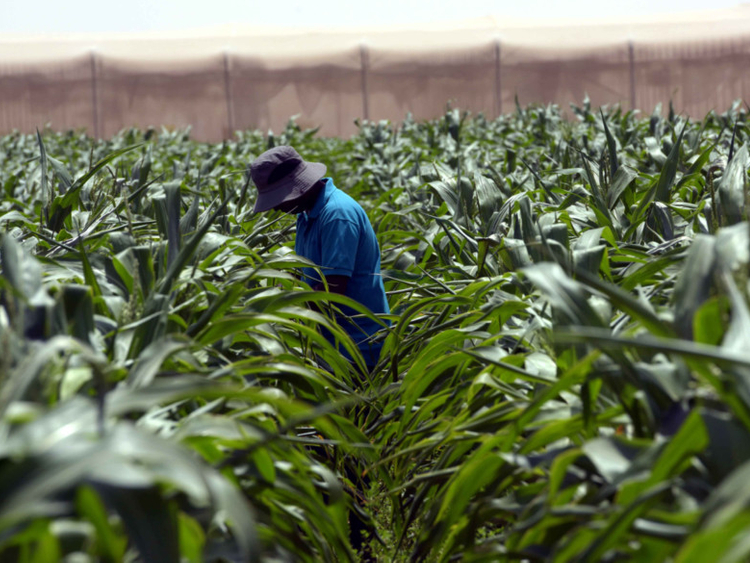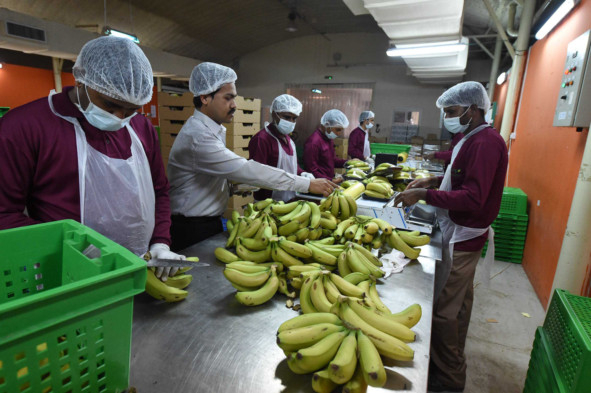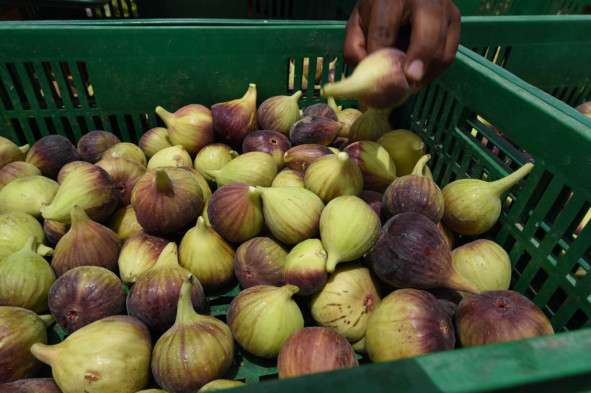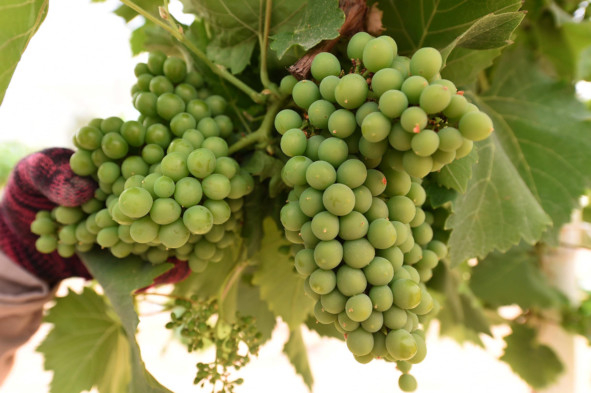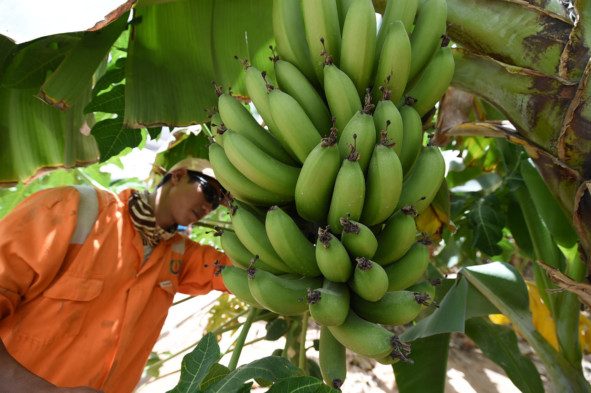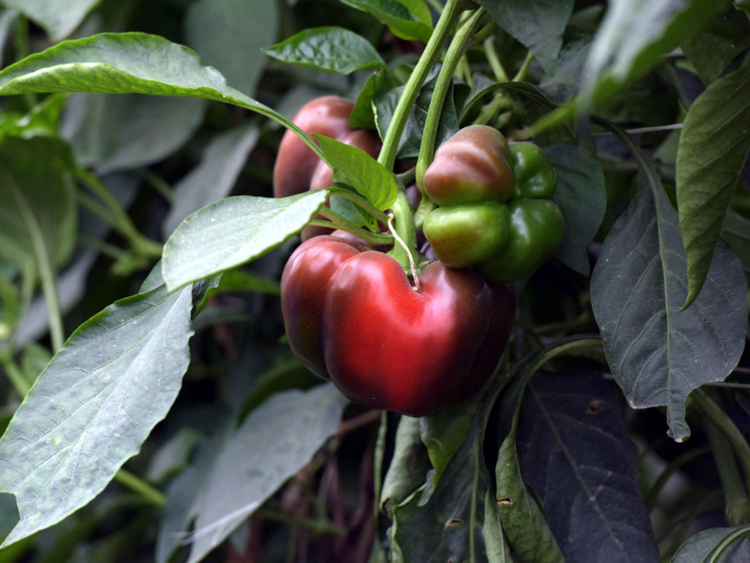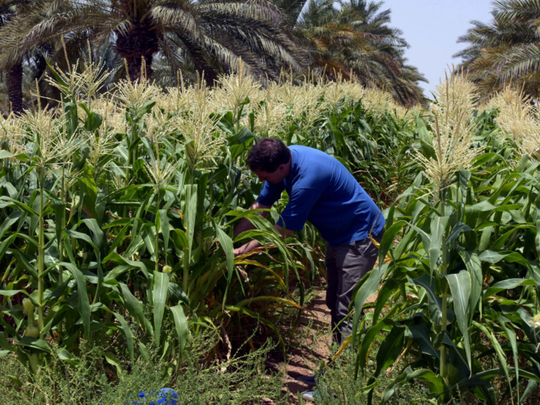
Abu Dhabi: A tour of the Al Rawafed Agriculture Organic Farm in Abu Dhabi makes you feel you are somewhere in the middle of lush tropical greenery and definitely not in the middle of a desert.
Spread over 50 hectares off Sweihan Road, 20km from the main island of Abu Dhabi, the farm is a verdant paradise with acres of banana plantations, corn and fig fields, and netted farms growing tomatoes, bell peppers, lettuce, herbs and even a vineyard with five varieties of grapes.
Nearly 10 tonnes of fresh produce is picked, packed and sent to supermarkets and restaurants daily from this farm, making it one of the biggest local sources of organic products in the emirate.
Be it tomatoes, onions, aubergine (eggplant), sweet corn, herbs, potatoes, cabbage, lettuce or fruit like bananas, figs, melons, watermelons and pomegranate – any organic dinner you rustle up at home could have well come from the Al Rawafed farm.
“We follow different kinds of farming methods here like greenhouse, net farming, glass house as well as open field farming. The biggest challenge is, of course, to keep the crops alive without using pesticides,” Marius Pakker, managing director of the farm, told XPRESS.
Instead of pesticides, the farm uses an organic mix of garlic and chilly water which is sprayed on the crops to keep the insects away.
“We have also recently introduced ‘beneficial insects’, a method where we use ‘good’ insects to eat the ‘bad’ ones that pose a threat to the crops,” said Pakker from Holland who is an expert in farming.
The farm also releases ladybugs (small beetles) into the fields to eat bad insects.
A day at the farm
A typical day at the farm starts at 5.30am when workers start harvesting the crops for the day. “We have to start early before the crops get exposed to the sun,” said Pakker.
The veggies and fruit are collected and taken to the packaging unit in the farm. The produce is washed, sorted and packed according to specifications.
The rest is stored in temperature-controlled cold storages within the unit.
“There are two packing shifts – one in the morning and one in the evening. We have our own transport to deliver the orders to clients in and around Dubai, Abu Dhabi and Sharjah,” said Ravi Kiran, product executive, who supervises packaging and storing.
The farm also started exporting to Oman recently.
“We try to reduce the movement and hand contact with the produce to the minimum in order to maintain its freshness and longevity,” said Pakker.
After the products are loaded into trucks, the workers return to their daily task of care and maintenance of crops including weeding, cleaning and pruning.
“At 4.30pm, after workers retire to their accommodation, supervisors start looking at their daily reports.
“Before 6pm, the day is wrapped up so that we are all ready for an early start the next day,” said Pakker.
Did you know?
35 different varieties of fruits and vegetables are produced at the farm.
120 cubic metres of water is needed per hour to water the crops.
In winter water consumption is reduced to 40 or 50 cubes.
An irrigation computer is used to pre-set the amount of water each crop needs based on weekly weather forecasts and humidity in the air.
A total of 185 labourers including supervisory staff work at the farm.
Only two to three percent of UAE population are consumers of fresh organic products.



